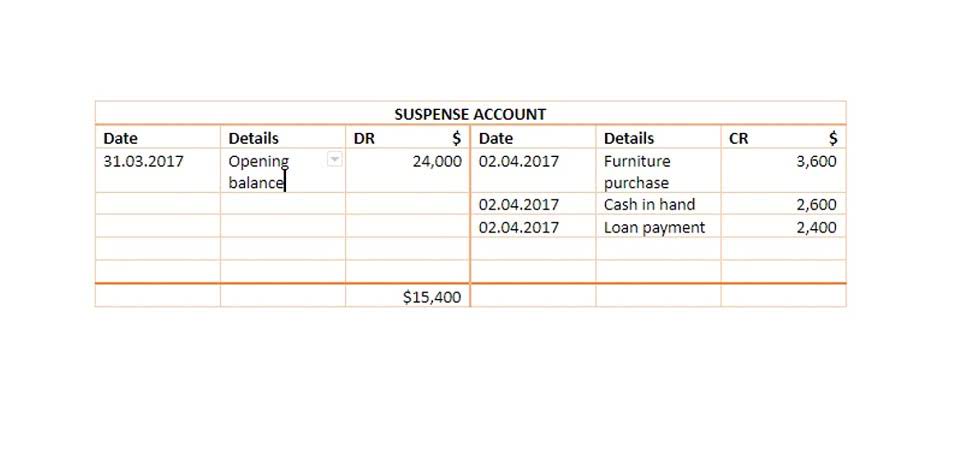5 2: Cost Behavior Vs. Cost Estimation Business LibreTexts

These costs can include raw materials, labor, and utilities, which are crucial elements for producing goods or providing services. It’s essential for businesses to continuously track and analyze these variable costs to understand their patterns and drivers. When dealing with mixed costs, start by identifying your variable and fixed components. Make sure to note the period of time your fixed cost is for (monthly, quarterly, annually, real estate cash flow etc). They are crucial for decision making, especially budgeting and forecasting.
- In 2006, she obtained her MS in Accounting and Taxation and was diagnosed with Hodgkin’s Lymphoma two months later.
- If you only consume 1,000 or less gallons of water, you’d only be paying the fixed portion which is $400.
- The integration of these practices enables businesses to optimize cost management, enhance profitability, and drive sustainable growth.
- The $400 is the fixed component as you’ll be paying for it no matter how many gallons of water you consume.
- Businesses can leverage more sophisticated methods such as the high-low method, regression analysis, or scatter plot technique to refine their fixed and variable components further.
- By conducting variance analysis, companies can identify the fixed and variable elements within these bills, enabling them to develop targeted management approaches.
- Costs rarely behave in the simple way that wouldmake life easy for decision makers.
Least Squares Method (Linear Regression)

They can be easily calculated by adding the fixed and variable components together. In simple words, mixed costs are expenses that cannot be separated into fixed and variable costs but are a combination of both. Mixed costs, also known as semi-variable costs, are business expenses that have both fixed and variable components.

What Are The Components Of Mixed Cost?
Delving into these components unravels the intricate dance of stability and change within a company’s expenses, providing insight crucial for adept financial navigation. The y-axis measures the QuickBooks costs and the x-axis measures product or sales volume. Three commonly used methods to divided a mixed or semi-variable cost into its fixed and variable components are high-low point method, scatter graph method and least squares regression method. All these methods have been explained and exemplified in next pages of this chapter. As the level of business activities changes, some costs change while others do not.
- Furthermore, the allocation of mixed costs is essential for performance evaluation and control as they directly influence a company’s profit margin.
- Similarly, if the company produces 1,000 units, the cost will rise to $2,000.
- Doing so will prepare them for the differing total costs for every level of activity.
- Mixed costs (also called semi-variable costs) are costs that have both fixed and variable components.
- Ultimately, the ability to effectively manage mixed costs directly impacts a company’s ability to achieve its financial goals and maintain profitability.
Understanding Cost Behavior

In a cost graph, mixed costs are represented by a line that starts from a point on the y-axis (representing the fixed cost) and slopes upward, reflecting the variable component. In some leasing situations, mixed cost definition there is a base rent, and then a percentage of sales on top of the base. Let’s imagine that you rent a space for a small retail location in your local mall. The fixed portion of this expense is $500, because you pay that amount even if your sales are zero.
Example of Mixed Costs
Piecework pay is an excellent example of directlabor as a variable cost. In addition, direct labor is frequently avariable cost for workers paid on an hourly basis, as the volume ofoutput increases, more workers are hired. However, sometimes thenature of the work or management policy does not allow direct laborto change as volume changes and direct labor can be a fixedcost. Understanding mixed cost is crucial as it directly impacts cost decision-making, effective cost management, and the accurate prediction of financial outcomes in business operations. Mixed cost, in accounting terminology, refers to a combination of fixed and variable costs that collectively contribute to the total cost of a business operation.

AccountingTools

By understanding cost behavior, companies can ascertain the fixed and variable components of mixed costs, aiding in better decision-making. Therefore, the total cost of the production of the garments is a mixed cost for the company as it has both fixed costs and variable cost components. The fixed component of mixed costs includes expenses that do not change with the production level, such as rent, insurance, and management fees. The variable component contains expenses that change with the production level, such as materials, labor, and energy (Bragg, 2019). The X-axis shows the different activity levels in the above graph, i.e., different output levels, and the Y-axis shows the costs. Line BC shows the total cost incurred at different levels of output in the company.
- Understanding the difference between these costs can help a company ensure its fiscal solvency.
- This approach is more complicated, but yields budget figures that are more likely to match actual results.
- Such analysis enables businesses to distinguish between fixed and variable components, aiding in effective cost control and allocation.
- Semi-fixed cost includes both fixed and variable components as these are the costs that are fixed up to some level of production in the company.
- Embracing a proactive approach to cost management, through energy conservation initiatives or negotiating favorable utility contracts, can further optimize financial performance.
- To calculate a mixed cost, one must first determine the fixed and variable components and add them together.
- These costs are incurred regularly and remain constant over a specific period, regardless of the volume of goods produced or services rendered.
- This makes the phone plan a mixed cost as it has both fixed and variable components.
- These tools enable businesses to make informed decisions that enhance profitability, optimize resource allocation, and ensure financial stability.
Whether you’re a startup, a large corporation, or a nonprofit, understanding and managing mixed costs is essential for sustainable growth. It requires knowledge of algebra and statistics though, making it the most demanding method of segregating the fixed and variable components of a mixed cost. The high-low method is probably the simplest and easiest method of segregating the fixed and variable components of a mixed cost.

